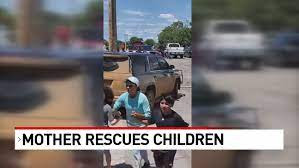Years ago, colleges employed
people to perform auxiliary services. University employees staffed the campus bookstore,
ran the student union, and performed janitorial services.
Over time, however,
universities began outsourcing almost all of their auxiliary services. Barnes & Noble now runs hundreds of college bookstores. National fast-food
chains operate stores in countless student unions.
Recently, however, American
colleges have gone beyond outsourcing their non-instructional activities. Now,
the universities are outsourcing their core mission: teaching students.
According to the Government Accountability
Office (as reported in the Wall Street Journal), 550 colleges and
universities are partnering with for-profit companies to design courses,
recruit students, and manage instruction.
Academic
Partnerships, one of the
leading for-profit outfits, contracts
with universities all over the United States to manage graduate programs--for a
hefty fee, of course. Higher Education Inquirer estimates that AP
collects about half the revenue from the courses and programs they manage.
2U, another for-profit online instruction
provider, has a contract for services with the University of Oregon and gets 80 percent of the tuition for 2U-managed courses. That's a good deal for 2U's stockholders.
What the hell is going
on?
As the Wall
Street Journal explained, colleges are losing revenue due to
declining enrollments. They aren't raising enough money to pay all their
administrators and bureaucrats. Thus, hundreds of schools are investing heavily in online academic programs--especially graduate programs--to juice their revenues.
Respected public universities like the University of North Carolina and the University of Oregon have turned to for-profit companies to design or revamp various graduate programs, recruit
students, and oversee instruction.
Why don't the professors do
those things?
I don't know. Perhaps the
faculty don't have the skills necessary to recruit
students, manage enrollment, or design academic programs for an online format. Or maybe doing these things is just too
fuckin' hard.
I have a professor friend whose
dean ordered him to design and teach an online course for a master's degree
program managed by Academic Partnerships. He was told the class would be
conducted online over five weeks.
My friend was a good soldier
and taught the course as directed. He had over 600 online students! When
the class was completed, my friend told the dean he would never teach an online
course that way again, even if it meant being fired.
As the Wall Street
Journal pointed out, students are often unaware that they are taking a
course managed by a profit-driven company, not the university.
For example, the University of Texas at Arlington has a big-time financial relationship with Academic
Partnerships, which manages
graduate programs in nursing, education, business, and public health. Nevertheless, UTA's promotional materials do not disclose that Academic
Partnerships manages these online graduate programs.
Students all over the United
States are taking out loans to pay tuition bills at public universities in the
naive belief that these schools are non-profit entities dedicated solely to the
public good.
Most of these students would be
surprised to learn that a profit-making company is sucking up a good share of
their tuition dollars to enrich their executives and investors.
My take on this? If a public
university is so goddamn lazy or incompetent that it has to pay a private
company to manage its academic programs, then that university should be
closed.








